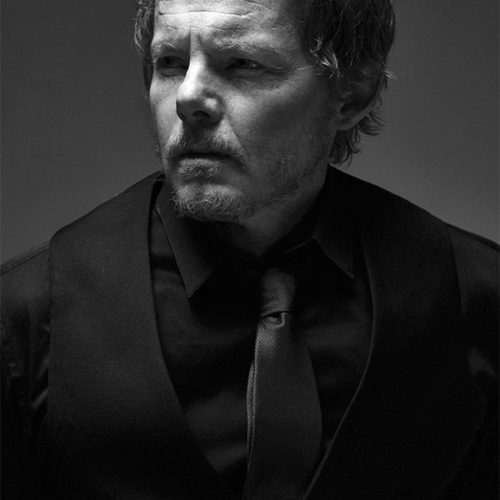Film Career Finder
Start Here:
Actor
Career Overview
An actor embodies a character in a film, TV show, or other type of scripted content. With extensive research, memorization, and collaboration with the director of the project, they turn words on the page into dynamic and believable on-screen performances.
Alternate Titles
Actress, Artist, Cast Member, Performer, Talent, Thespian
Avg. Salary
$62,3181
Salary Range
$15,500 – $139,5002

How To Become an Actor
- Most of an actor’s work takes place when the cameras aren’t rolling, including auditioning, self-promotion, preparing for roles, and honing their craft
- Before reaching stardom, many actors earn their income through side jobs with flexible schedules
- An actor can improve their career outlook by moving to an entertainment hub, joining a union, securing representation, and sharpening their skills
- Some actors write and/or produce their own projects, casting themselves in leading roles to catch the attention of industry professionals
- While the career could be incredibly rewarding, it requires determination, flexibility, and emotional resilience
- Career Description
- Salary
- Career Outlook
- Career Path
- Experience & Skills
- Education & Training
- Additional Resources
- Sources
- References
Career Description
An actor brings a character to life using their body, voice, and emotions. But great acting is more than just memorizing lines. It requires navigating on-set responsibilities and managing life between roles to build a long-lasting and successful career.
On-Set Life
When an actor is on a set, their main points of contact are the 1st assistant director, director, and any PAs. The makeup, costume, and sound departments, armorers, and choreographers will also work closely with the actors to get them ready for their scenes.
Once cameras are rolling, an actor will work with the cast and crew to portray their character, applying notes and direction until the director is satisfied with the take.
Should an actor rise to fame, they may also need to be present for promotional shoots, events, and media tours to market their film or other project.
Every on-set experience will be different. Actor Tom Holland shows at-home audiences what it’s like for him while in principal photography on Uncharted.
Off-Set Life
An actor’s work doesn’t end when a production wraps. In fact, much of their career is spent in between roles, actively preparing for the next opportunity.
Getting into character
When an actor is “booked,” it means they have landed a role. Depending on their technique, much of their time could be dedicated to analyzing their character’s choices, memorizing lines, and figuring out the best way to approach a role. This might involve extensive background research, taking notes, or rehearsing with the director and other actors.
Applying to casting calls
If an actor does not have representation, they are responsible for seeking out casting calls and landing auditions on their own. This requires researching casting websites and submitting items like headshots, reels, cover letters, and acting resumes when applicable.
If an actor has an agent or a manager, those representatives may be able to submit to opportunities on the actor’s behalf. Most of the time, their reps have access to exclusive casting calls.
Auditioning
An audition consists of reading sides, which are excepts of a scene, and performing for a casting director and/or casting associate. In some cases, a producer and/or the director may also be present. In the post-Covid era, self-tapes and Zoom auditions have become a popular and convenient alternative to in-person auditions.
Sharpening skills
Actors may spend considerable energy and time waiting for that phone call from their agent or manager about a potential callback or offer. What may seem like a professional lull is actually a period of hard work with workshops, classes, short films, and other activities to help improve an actor’s chances of booking a gig.
Self-promotion
Actors work extensively with their agents and managers to develop their careers and land roles. Without representation, an actor might spend a few hours each week trying to catch the attention of agents, managers, casting directors, and directors. This could include activities like networking at events, volunteering on film sets, social media branding, and self-producing content.
How do actors get started in the business? There’s no one single path to success, as Matthew McConaughey describes his own unique foot-in-the-door story.
Salary
The pay scale for actors can fluctuate greatly depending on the medium in which they are working, with the average salary falling just around $62,318 per year.
The rates for an actor working on a cable show, streaming show, web series, or short film will generally be less than that for a network show or studio-backed feature film. In some cases, an actor might participate in a project for no or deferred pay.
Union vs Non-Union
How much an actor receives for their work can depend on whether they are a non-union actor or union actor. Non-union actors have highly flexible rates, while union actors work under contracts with established minimums. Because union membership is reserved for proven professionals, union actors typically earn more than non-union actors.
Payment rates likewise depend on the level of work being done. Someone with less than five lines will receive less pay than the star of the show.
How Film Actors Get Paid
On a feature film, actors typically get paid per day or per week of filming. As of 2025, SAG-AFTRA daily minimum rates begin at $241 per day for ultra low budget productions, $783 for low budget productions, and $1,204 for theatrical productions.3
In the case of the biggest stars, however, pay rates are higher, and can be accepted as lump sums. A well-known actor can even make several million dollars for a single role. This figure tends to include backend points, which are a percentage of a movie’s profits. For instance, Robert Downey Jr. earned $20 million up front for his role in Avengers: Endgame, but made an extra $55 million off the film’s profits.4
How TV Actors Get Paid
Actors with smaller TV roles are usually paid a daily rate, while actors with larger recurring roles are paid per episode. A recurring role on a network TV show can earn an actor anywhere from $20,000 to $1 million should both the show and the actor themselves be highly successful. In 2022, Kevin Costner made more than $1 million per episode on Yellowstone.5
Many actors worry about how much they can make in this career, but it’s important to keep in mind as well how much you might spend as a performer. Check out this video for an inside look!
Hey, what do you think about trying our new Film Career HelperFilm Career Helper really quick? It’s totally free and could help get your career moving fast! Give it a try. It’s totally free and you have nothing to lose.
Career Outlook
Is it Difficult to Become an Actor?
Acting is one of the most sought-after careers.
In order to fully understand the competitive nature of the industry and how to build a successful career, we talked to several actors from hit films and TV shows, including Gerald Isaac Waters (All Together Now, Angie Tribeca). According to Waters, “You’ve got to be able to handle rejection. That’s the thing no one really talks about. You hear about all these overnight sensations, but they’ve been in the business for twelve, fifteen years.”
In order to pay the bills, many actors pursue roles while juggling flexible employment as restaurant servers, bartenders, rideshare drivers, or similar work. This need has grown as streaming platforms and web series, while creating more opportunities, often pay lower rates than traditional film and television.
Though it may be difficult to land a high-paying role, new media platforms and filmmaking technologies make it easier than ever for actors to find work. Many actors film skits or shorts with their phones and upload them to self-distribution platforms like YouTube. Even Director Sean Baker’s breakthrough film Tangerine earned a theatrical release despite being shot entirely on an iPhone.
Best Cities for Actors
An actor’s career success will also depend on where they are located. Outside of voice work, which can potentially be done from any location, many actors live or relocate to entertainment hubs where films and TV shows are regularly being shot.
Though Los Angeles and New York City remain the top cities for actors, state tax incentives have expanded the list to include cities like:
- Las Vegas, NV
- Atlanta, GA
- San Francisco, CA
- Chicago, IL
- Stamford, CT
- Austin, TX
However, because these cities tend to attract many aspiring actors, it also means an increase in competition for auditions and paid gigs.
To build a lasting and financially solvent career, an actor depends on a combination of talent, experience, and industry connections. It’s important that an actor continually hone their craft and keep developing relationships that could lead to future acting opportunities.
The path to success in acting is one often littered with frustration and disappointment. Matt Damon describes his early days as a struggling actor.
Career Path
So, how do you become an actor?
Well, there isn’t a cookie-cutter path to making it, and getting the “big break” can come in a myriad of ways. However, there are some common steps many actors take on their path to success.
Study Acting
Many actors begin their careers with formal training through a college theater program. Not only is this a standard way to develop those acting chops, but it can also provide great opportunities for networking with other actors. Did you know that Robin Williams and Christopher Reeve were roommates while attending The Juilliard School?
Some actors choose to get their formal training outside of traditional higher education. Acting studios, improv studios, and more can be found in both large cities and small towns.
Get Professional Headshots
A headshot is often the first thing casting directors see when they’re going through submissions for a role, and as the saying goes, you never get a second chance to make a first impression. It’s absolutely vital for an actor to invest in high-quality, recent, and accurate headshots.
Headshots can even help actors with little to no experience book an audition. Check out Casting Director Benton Whitely’s opinion on what makes a great headshot.
Grow Your Acting Experience
Local theater groups
Many actors start their journeys well before they graduate high school, which means it’s never too soon to begin honing those acting skills. Local theaters can provide opportunities to build an acting resume of work regardless of an actor’s age.
Independent projects
Given that the average smartphone has the capacity to capture high-quality footage, many emerging actors collaborate with other creatives to make DIY short films and web series.
Some actors become multi-hyphenates such as writer-actor or actor-producer. These individuals write material for themselves and/or produce it with the hope that it will attract the attention of managers, agents, casting directors, directors, producers, and anyone else who might be in a position to hire them for a role.
Did you know the hit Comedy Central show Broad City started as a web series? Despite limited resources, Actors Ilana Glazer and Abbi Jacobson were able to catch the attention of Amy Poehler, launching their acting careers.
Background acting
Background actors, or extras, fill non-speaking roles that are much more numerous and easier to book than speaking roles. The experience allows actors to see what life is like on a set, make connections, and, if they’re lucky, maybe even get bumped up to a speaking role.
For Waters, background acting was an integral part of his path to professional acting. “Background opened up doors for me to get my SAG vouchers and then that opened a door to getting an acting coach,” he explains. “By working on background, I met another actress who was also in a chair and she referred me to her agent.”
Write an Acting Resume
Some casting calls require actors to submit an up-to-date acting resume. An acting resume is a one-page document that succinctly outlines an actor’s experience and other relevant casting details.
Create an Acting Reel
Acting demo reels are a great way for actors to show off their talent and experience. These video compilations feature the best moments in an actor’s performance, highlighting their strengths and/or emotional range.
If an actor doesn’t have any clips they could use from professional shoots, that’s no problem! They can always shoot some scenes with their friends, or perform a monologue on-camera.
Join a Union
Once an actor has enough experience, they typically choose to join an acting union. SAG-AFTRA membership generally provides stronger contract protections, access to higher-paying productions, and exclusive workshops and networking opportunities.
Build a Team
Another key component of pursuing a successful career is finding representation. A manager and agent are two vital individuals who can help an actor reach greater levels of success. With the former helping to hone an actor’s career path (and land auditions) and the latter focusing exclusively on getting auditions for talent, both can be instrumental for an actor’s professional life.
From there, an actor’s career path depends greatly on landing gigs that will get them noticed while also helping to develop their skillsets.
Get Started Today
You don’t have to wait for a manager, agent, or casting director to get started on that path to success. Here are some things you can do today to get started on your career:
- Take an acting class
- Take an improv class
- Read plays and screenplays
- Watch movies
- Create a profile on casting sites in your market
- Take professional acting headshots
- Create an acting reel so others can see your work
- Reach out to potential agents and managers for representation
Experience & Skills
Acting is much more than playing a part. Unfortunately, the vast majority of people who start a career in acting quit within ten years,6 as it requires a whole lot of skill, determination, and emotional resilience to succeed.
“I think working in this industry is one of the most rewarding industries you can work in,” explains Chloe Farnworth (MaXXXine, Departure, 12 Hour Shift). “But it’s definitely very challenging and you need to be very open, happy, and willing to work very hard.”
Because of this, people interested in learning how to become an actor must excel in a number of skills on and off the set.
Technical Skills
A significant part of an actor’s job is delving into the inner emotional world of the character they are playing. For this reason, it’s critical that an actor be able to access the vulnerability and authenticity that will successfully bring that character to life, and communicate these abilities on-set and during an audition.
There’s also the adage of “acting is reacting,” which in large part means being able to work with and play off the emotions of other actors.
As with any craft, it takes practice for an actor to become proficient at portraying the many diverse characters they may be asked to play over the course of their career.
Emotional Resilience
Actors must find a work-life balance that supports their craft while allowing them to maintain their mental and emotional health. The stress of rejection, fast-paced set environments, and low-paid work can weigh down on an actor, so emotional resilience is key.
Farnworth recommends aspiring actors eliminate the word “rejection” from their vocabulary. She explains, “You’ll get a lot further in this industry and be much happier because so many things are out of your hands… the most control you have is to do a good job and to be better than great in your auditions and when you’re on set working!”
Working Well With Others
Many actors enjoy the opportunity to dive into a long and emotional monologue, but a huge component of acting is being able to engage with the other professionals.
Whether it’s exercising patience as the crew sets up a shot, responding to notes with humility, or simply treating everyone with respect, actors who understand filmmaking as a collaborative industry tend to build long-lasting relationships in the industry.
Treating Acting Like a Business
As Waters puts it, actors are the “CEO” of their own business. They’re constantly searching for gigs, weighing offers, reading through contracts, forming a personal brand, and managing their finances. Even with representation, actors should have a decent understanding of self employment taxes, business, and time management.
An actor often needs to be their own marketing and PR person as well. Given the level of competition in the acting field, it’s frequently up to an actor to position themselves prominently in order for managers, agents, and casting directors to notice their work. That means being comfortable networking, as well as writing and/or producing independent projects that will hopefully get them on the radar of the individuals who can help them progress in their careers.
Education & Training
Acting can be learned outside of traditional education, but many actors seek out some type of formal training through college, acting classes, or workshops.
Choosing the Right Acting School
The educational options for actors have come a long way in the last 100 years. Once upon a time, an actor simply got on stage or in front of the camera and started acting. Now there are many notable institutions that can help an actor prepare for those roles. The Juilliard School, The Actors Studio, and the American Conservancy Theater are some prestigious examples among the many acting schools and programs across the United States.
When deciding between these institutions, aspiring actors will likely find themselves attracted to a particular acting method. Some of the most popular types of acting include…
- Classical Acting
- Method Acting
- Meisner Technique
- Chekhov Technique
- Stanislavski System
Acting Classes
Formal training isn’t only for actors just starting out in their careers. Many successful actors continue to hone their skills through short-term acting classes or with an acting mentor for the duration of their professional lives. While Actor Teach Grant (It Chapter 2, Van Helsing) encourages acting classes, he also recognizes that too much training can tank an actor’s performance.
– Teach Grant
On-Set Training
If an actor decides to forego formal training, they can still develop their craft through on-the-job experience. Again, there’s no shortage of options. Many can find opportunities through student films, short films, community theater, web series work, and other more readily accessible jobs as they build their resume of work to more high-profile gigs.
However an actor chooses to sharpen their skillsets, they must continually work on that all-important element of accessing the inner emotional world of the character they’re playing, bringing them to life in a film, TV show, play, or other type of role.
What kind of education do you need to set yourself up for success as an actor? Take a look at this video to find out.
Additional Resources
If you want to learn more about how to become an actor, there are a variety of professional and online resources worth checking out.
Local Organizations
Depending on the location, in-person acting organizations provide local actors with resources, including networking events, casting calls, and access to training. Most major cities in the United States, including some smaller towns, have local theater companies full of resources and opportunities.
Unions
As mentioned, the main union for film, television, and commercial actors is the Screen Actors Guild (SAG-AFTRA). They mostly handle negotiating base rates for actors, but their website also provides extensive information, event schedules, and links for aspiring actors. Actors who pursue stage or theater work can check out the Actors’ Equity Association.
However, membership is not automatic. If you want to become a union actor, research the qualifications necessary to join SAG or AEA.
Online Resources
Each acting market has its own online casting websites where actors can create a profile with their headshot, resume, and reel. You can use these sites to submit for roles and send your profile to agents and managers when you’re looking for representation. Several of the main sites are Actors Access, Backstage, and Casting Networks.
MasterClass is another online resource where industry professionals conduct online classes for students. Some of their teachers include A-list actors like Natalie Portman, Helen Mirren, and Samuel L. Jackson.
Sources

Chloe Farnworth
This year actress on the rise Chloe Farnworth can be seen starring in Magnolia Pictures’ stylish, dark comedy feature 12 Hour Shift, which was an official selection at The SXSW Film Festival (2020) and had its world premiere at The Tribeca Film Festival (US Narrative Competition).
Appearing opposite David Arquette and Angela Bettis, the film is set in 1998 and follows Mandy (Bettis), a nurse at an Arkansas hospital, who is desperate to make it through her double shift without incident while also being involved in a black-market organ-trading scheme. When her hapless but dangerous cousin Regina (Farnworth) messes up a kidney delivery, chaos descends on the hospital as the cousins frantically try to secure a replacement organ through any means necessary.
Critics have praised Farnworth’s performance in 12 Hour Shift, saying: “Farnworth’s homicidal sexpot, by contrast, is the true monster here… she’s like Hannibal Lecter as played by Judy Holliday” (Variety), “delightfully unhinged…” (SlashFilm), “Chloe Farnworth is equally great as her beyond-dumb cousin…” (Den of Geek), “a delight… absolutely great” (Daily Dead), and “Farnworth’s performance is incredibly fun to watch” (The Knockturnal).
12 Hour Shift was released on October 2, 2020, in movie theaters, drive-in theaters, and video on demand.
In television, Farnworth can next be seen as Leah Sims in the British-Canadian thriller series Departure which is set to premiere on September 17, 2020 in the US on Peacock. Additional credits for Farnworth include the indie crime feature film Other Monsters for which she won Best Actress at the Los Angeles Crime and Horror Film Festival, Bond of Justice: Kizuna, Nostalgia (Bleecker Street Media), Soy Nero, Thor: The Dark World (Marvel) and Linkin Park’s music video for their 2014 single, “Final Masquerade.”
Born in Ashperton, England and raised in Herefordshire, Farnworth grew up with an innate love for the arts and her parents enrolled in theatre classes at just ten years old. She attended the prestigious Royal Central School of Speech and Drama, joining the ranks as an alumnus opposite other famous graduates including Joe Alwyn, Kit Harington, Carrie Fisher, Riz Ahmed, and Andrew Garfield, to name a few. She landed her first professional role as the Virgin Mary in Emily Warddill’s Full Firearms (2012) and has been working ever since.
When she isn’t on set, you can find Farnworth boxing, surfing, horseback riding, and baking. She also has an eye for design and has recently been renovating her home in Los Angeles.
Farnworth’s work has received mentions from The New York Times (twice), USA Today, Deadline, Consequence of Sound, Nerdist, Yahoo Entertainment, Austin Chronicle, Filmmaker Magazine, Rotten Tomatoes, The Los Angeles Times, Dread Central, Bloody Disgusting, Vulture, Decider, Lockport Journal, LRM Online, Reel News Daily, Voyage LA, Berk Reviews, Vents Magazine, Nightmarish Conjurings, Culture Mix Online, Courageous Nerd, In Their Own League, Rue Morgue, Hey U Guys, Nerds and Beyond, Deepest Dream, The Pop Break, Screen Rant, Age of the Nerd, ComicBook.com, Flickering Myth, Cleveland.com, Arkansas Times, Washington City Paper, The Pitch Kansas City, Columbus Underground, Exclaim!, We All Want Someone to Shout For, The Hollywood News, Screen Anarchy, Slant Magazine, Film School Rejects, The Young Folks, Moveable Fest, Film Threat, Entertainment Focus, Geek Tyrant, The Wrap, and Thrillist.
PHOTO CREDITS:
Photographer: David Higgs
Hair + Make-up: Alexandria Storm
Styling: Aaron Gomez at Ivan Bitton Style House

Jordana Lajoie
French-Canadian actress Jordana Lajoie plays Cherie on Amazon’s The Boys.
She has been featured in Geek Girl Authority, Metro UK, Los Angeles Times, Backstage, Horror Geek Life, CBR, The TV Dudes Podcast, Villain Media, Explosion Network, Pop-Culturalist, Starry Mag, Naluda Magazine, Vents Magazine, Gamespot, Le Devoir, and Le Huffington Post Quebec.
Photo Credit: The Image Salon in collaboration with Daniel Esteban and Hailey Voorand

Gerald Isaac Waters
Gerald Isaac Waters is an Actor who has appeared in several film, television, and theatre productions. He’s best known for his role on Netflix’s All Together Now and TBS’s Angie Tribeca.
He has participated in Target’s summer campaign, modeled for brands such as Zappos Adaptive, and rolled the runway during New York Fashion Week. In October 2020, he was selected as the Casting Society of America’s of the Month; he was interviewed by Mike Page, CSA, for a brief actor spotlight.
Gerald was also a part of Los Angeles Community College’s Acting Conservatory. He will take the stage in a theatrical production of The Cost of Living in Seattle in early 2021. The Tennessee native currently resides in Los Angeles, where he enjoys scoping out new restaurants with his friends.
He has received coverage in Deadline, Variety, Refinery 29, CNET, Backstage, Nerds of Color, Broadway World, Nerds and Beyond, Enspire, Meaww, Haute Living, RespectAbility, The Hollywood Podcast, Republic World, Full Circle Cinema, Getting Personal, and the Imperfectly Perfect campaign.

Teach Grant
Born in Toronto, Ontario, Teach Grant moved to Vancouver in 1996 after University, studying at both Carleton (Psychology) and Ottawa U (Theatre) in order to pursue a career as an actor in film and television. After a series of black box theatre productions, Teach landed his first film audition garnering him an opportunity to cut his teeth on a leading role in the 1997 independent film Limp opposite the late Michael Hutchence.
Known for his depth, gritty style, and onscreen presence, Teach has become a fixture in the film and television landscape and has amassed an impressive list of credits that include many leading roles in film, series guest stars, and recurring television appearances.
In 2014 Teach released his first feature film as writer and director with Down Here, a film that chronicles missing young street workers in Vancouver’s downtown eastside. Recently Teach has appeared as Henry Bowers in Warner Brother’s It Chapter 2, directed by Andy Muschietti.
He has received coverage in Entertainment Weekly, Variety, Bustle, Mashable, Screen Rant, Yahoo! Entertainment, Alternative Press, E! Online, Bloody Disgusting, Refinery 29, Vancouver Sun, Collider, Maxim, CNET, Teen Vogue, The Sun, Empire Online, Uproxx, Buzzfeed, The Beat, The Daily Mail, Dread Central, Pop Matters, The Beat, Dark Horizons, YVR Screen Scene, Digital Spy, Below the Belt Show, Popcorn Talk, Shuffle Online, Meaww, Seat 42F, First Post, Comicbook.com, Scream Horror Mag, The Geek Chic Elite Podcast, Slash Film, Cinema Blend, Business Standard, What Culture, HUF Magazine, Dead Entertainment, Nerds and Beyond, ScreenCrush, and CBR.
References
- 1. "How much does an Actor make?". Glassdoor. published: June 06, 2024. retrieved on: March 14, 2025
- 2. "Movie Actor Salary". ZipRecruiter. published: February 27, 2025. retrieved on: March 14, 2025
- 3. "Essential Guide to SAG-AFTRA Rates 2025". Wrapbook. published: January 1, 2025. retrieved on: March 13, 2025
- 4Borys Kit. "Robert Downey Jr.’s Massive Payday Tops ‘Avengers: Endgame’ Star Deals". The Hollywood Reporter. published: April 30, 2019. retrieved on: March 13, 2025
- 5Michael Schneider, Joe Otterson. "TV’s $1 Million Salary Club: Kevin Costner, Sylvester Stallone, Mahershala Ali and More See Huge Paydays". Variety. published: July 20, 2022. retrieved on: March 13, 2025
- 6Chris Frawley. "Decoding the Dream: What Percentage of Actors Actually ‘Make It’?". Backstage. published: August 5, 2024. retrieved on: March 15, 2025


